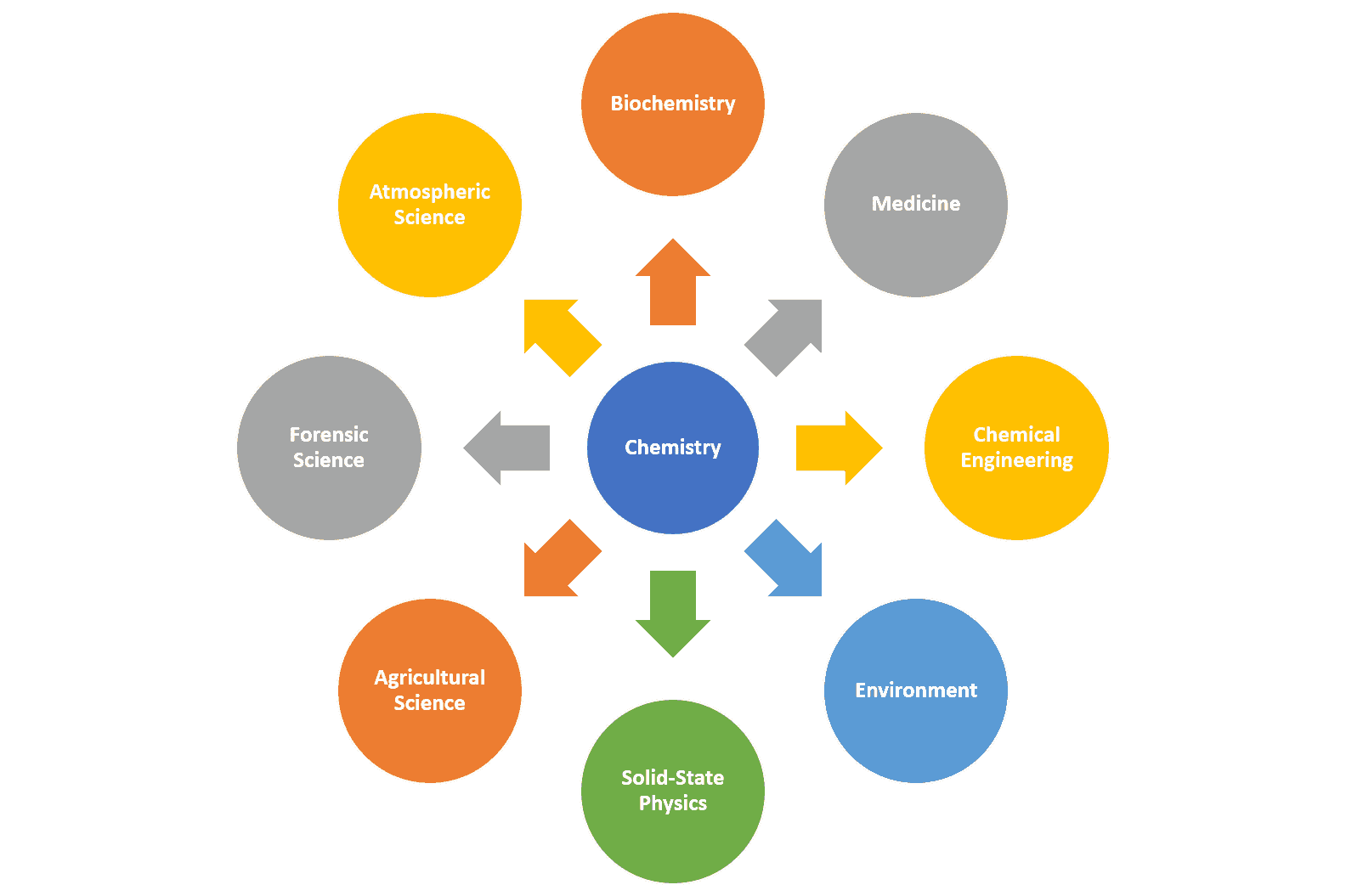General Introduction:
Chemistry is the science of molecules and their transformations. It is the science not so much of the one hundred elements but of the infinite variety of molecules that may be built from them.
~Roald Hoffmann
Chemistry is the study of matter and the ways in which different forms of matter combine with each other. Chemistry deals with the composition, structure and properties of matter.
These aspects can be best described and understood in terms of basic constituents of matter: atoms and molecules. That is why chemistry is called the science of atoms and molecules. Can we see, weigh and perceive these entities? Is it possible to count the number of atoms and molecules in a given mass of matter and have a quantitative relationship between the mass and number of these particles (atoms and molecules)? You will find all your answers in Chemistry. Chemistry relates to everything that can be sensed from the minute elements to complex structures. You study chemistry because it helps you to understand the world around you. Everything you touch or taste or smell is a chemical, and the interactions of these chemicals with each other define our universe. Chemistry forms the fundamental basis for biology and medicine. From the structure of proteins and nucleic acids, to the design, synthesis and manufacture of drugs, chemistry allows you.
The principles of chemicals are quite varied and are essentially important which includes brain functioning, computer operations, weather patterns, chemical industries, manufacturing fertilizers, acids, alkalis, salts, drugs, soaps, etc. Chemistry also acts as a major determinant in meeting the human needs for food, healthcare products, and also other materials that are aimed at improving the life’s quality. The principles of chemistry have been used for the benefit of mankind. Think of cleanliness — the materials like soaps, detergents, household bleaches, tooth pastes, etc. will come to your mind. Look towards the beautiful clothes — immediately chemicals of the synthetic fibers used for making clothes and chemicals giving colors to them will come to your mind. Food materials — again a number of chemicals about which you have learnt in the previous Unit will appear in your mind. Of course, sickness and diseases remind us of medicines — again chemicals. Explosives, fuels, rocket propellants, building and electronic materials, etc., are all chemicals. Chemistry has influenced our life so much that we do not even realize that we come across chemicals at every moment; that we ourselves are beautiful chemical creations and all our activities are controlled by chemicals.
Importance & Scope of Chemistry:
Science can be viewed as a continuing human effort to systematize knowledge for describing and understanding nature. For the sake of convenience science is sub-divided into various disciplines: chemistry, physics, biology, geology etc. Chemistry is the branch of science that studies the composition, properties and interaction of matter. Chemistry is sometimes called “the central science” because it’s so important to other fields of science, like biology, geology, astronomy, physics, medicine, engineering, materials science, and many other areas of study.

Chemistry also plays an important role in daily life. Chemical principles are important in diverse areas, such as: weather patterns, functioning of brain and operation of a computer. Chemical industries manufacturing fertilizers, alkalis, acids, salts, dyes, polymers, drugs, soaps, detergents, metals, alloys and other inorganic and organic chemicals, including new materials, contribute in a big way to the national economy. Chemistry plays an important role in meeting human needs for food, health care products and other materials aimed at improving the quality of life.
This is exemplified by the large scale production of a variety of fertilizers, improved varieties of pesticides and insecticides. Similarly many life-saving drugs such as cisplatin and taxol, are effective in cancer therapy and AZT (Azidothymidine) used for helping AIDS victims, have been isolated from plant and animal sources or prepared by synthetic methods. Chemistry plays an important role in the discovery of highly explosive substances such as TNT, nitroglycerine, and dynamite. It also plays a role in finding poisonous gases like mustard gas, Phosgene etc.
With a better understanding of chemical principles, it has now become possible to design and synthesize new materials having specific magnetic, electric and optical properties. This has lead to the production of superconducting ceramics, conducting polymers, optical fibers and large scale miniaturization of solid state devices. In recent years chemistry has tackled with a fair degree of success some of the pressing aspects of environmental degradation. Safer alternatives to environmentally hazardous refrigerants like CFCs (chlorofluorocarbons), responsible for ozone depletion in the stratosphere, have been successfully synthesized. However, many big environmental problems continue to be matters of grave concern to the chemists. One such problem is the management of the Green House gases like methane, carbon dioxide etc. Understanding of bio-chemical processes, use of enzymes for large-scale production of chemicals and synthesis of new exotic materials are some of the intellectual challenges for the future generation of chemists. A developing country like India needs talented and creative chemists for accepting such challenges.
